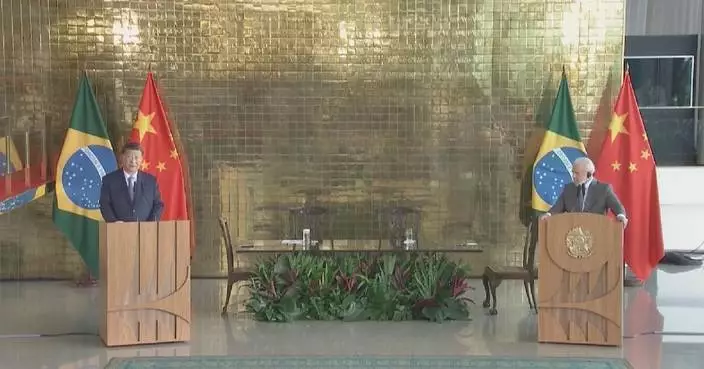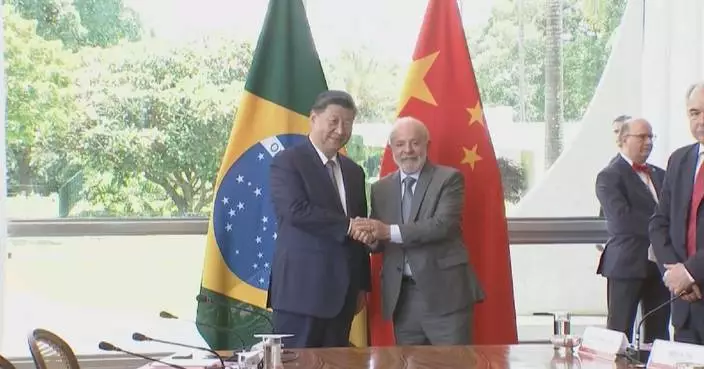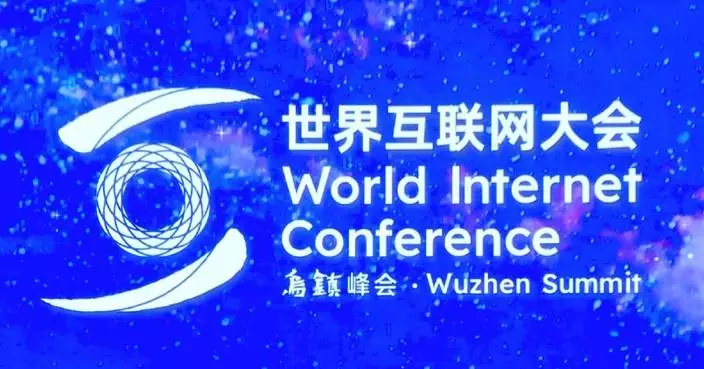A supreme council member of the United Arab Emirates (UAE) kicked off his four-day visit to south China's Guangdong Province on Tuesday morning.
The first stop of Sheikh Saud Bin Saqr Al Qasimi, supreme council member and ruler of Ras Al Khaimah of the UAE was Sun Yet-sen University (SYSU) in Guangzhou City, which is celebrating its centennial anniversary this year.
He held talks with teachers and students of SYSU on cultural exchanges and further collaboration between the two countries.
This is the second time he has visited China this year, as the two countries are celebrating their 40th anniversary of diplomatic relations.
"We're very proud to have friends like China, and we're very proud to collaborate with Guangzhou," he said.
"In fact, we have a varying collaboration background with the UAE, like we have the collaboration with Gulf Medical University in the faculty training, in medical education. So, we are asked to help them to establish a reproductive center, and genetic diseases center, to help them to train the faculties, to introduce the high medical techniques there," said Xiao Haipeng, executive vice president of SYSU and president of the First Affiliated Hospital under the SYSU.
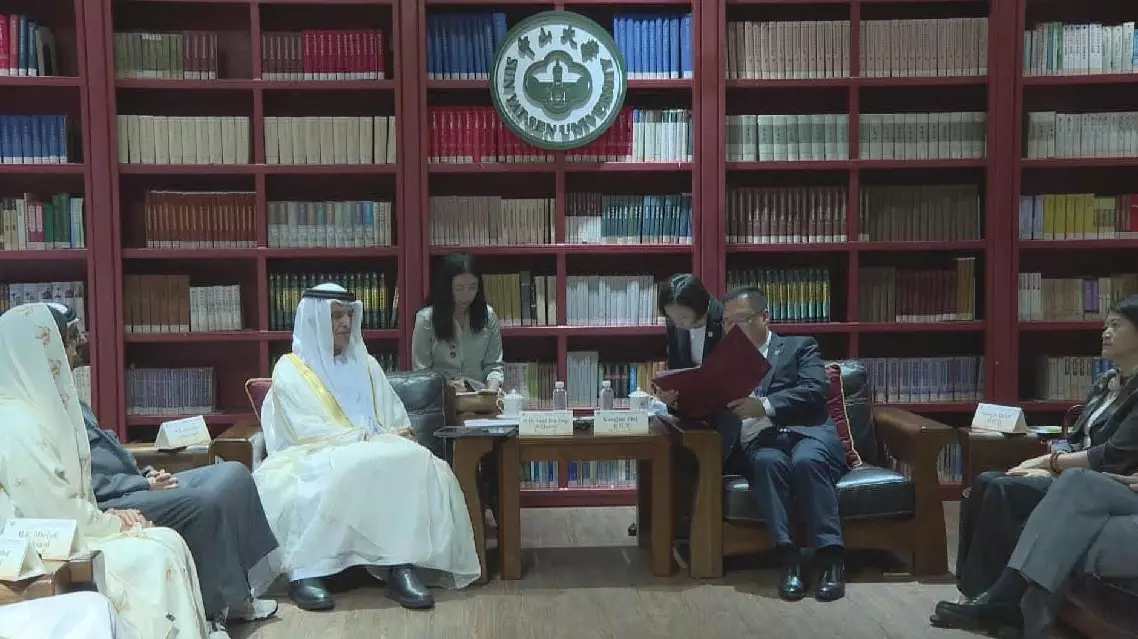
UAE supreme council member visits Guangdong
Egypt is making a push towards localizing the assembly and production of electric vehicles (EVs) to boost its auto sector while pursuing sustainable development.
Egyptian Prime Minister Mostafa Madbouly on Sunday reopened the state-owned Nasr Auto Company following a 15-year hiatus. Now the company has a capacity to produce more than 40,000 electric vehicles a year as well as EV batteries.
"Egypt, according to the prime minister, now has the capacity to produce half a million electric cars annually and the contracts signed with foreign firms so far will produce about 100,000 cars a year," said Mahmoud Khairy, a car trader and expert from Egypt.
Having free access to European and African markets, the most populous Arab nation can also leverage its strategic geographic location and huge market potential to become a regional hub for exporting self-manufactured vehicles.
"The country will benefit from local production by being partially self-sufficient in vehicles. This means less expenditure on hefty import bills," said Mahmoud Khairy.
The Egyptian government offers various incentives including tariff and tax breaks to encourage foreign companies to set up production locally, which in turn brings in advanced insights and expertise for EV manufacturing.
Egypt has witnessed booming sales of EVs. Electric cars increased from the beginning of July 2021 until the end of June 2024, raising the total number of licensed electric vehicles to 7,213, with BYD as the second best-selling car brand, according to the data.
Several European and Asian brands have already signed up to establish assembly plants in Egypt, including those from China.
Waleed Suleiman, the CEO of Spark EV Company in Egypt, is discussing with his Chinese counterparts plans to establish an assembly plant for Chinese EVs in Egypt.
"The Chinese cars are very advanced, high quality, very reasonable price. When you compare it with European cars and American cars, it's far away. If not a better quality, it's the same quality, but when it comes to price, it's much much lower than the other ones, and that's why people tend to go and buy Chinese cars," he said.
Experts from auto industry have also emphasized the need for EV infrastructure to keep up with the expansion plans.
"The number of recharging points increase gradually, covering main roads and highways and we are building new ones daily.There are 8 companies licensed to establish charging points," said Ahmed Zain, owner of Alienz Auto.
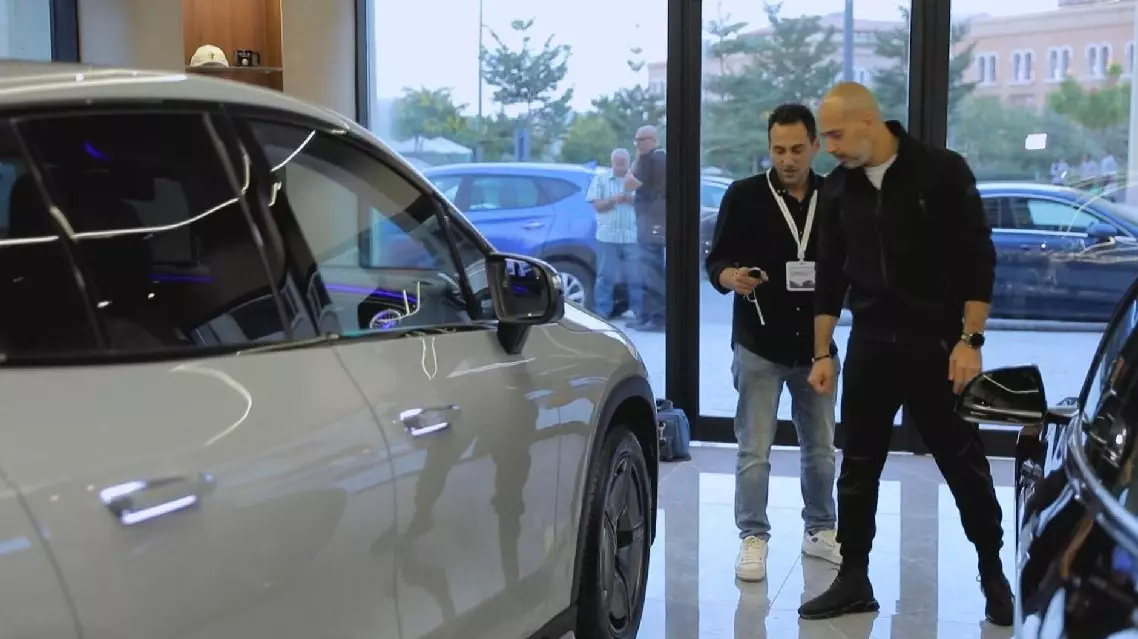
Egypt localizes EV assembly, production to lift its auto sector, reach sustainable goals







